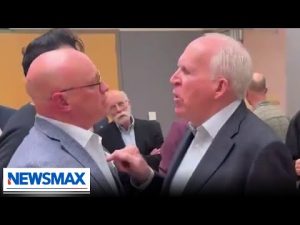On October 1, 2025, the federal government went into a shutdown that laid bare a harsh truth many in Washington would rather ignore: when too many Americans build their lives around government payouts, the inevitable pullback of funding turns families into frantic dependents overnight. The shutdown forced a reckoning about who is truly resilient and who has been lulled into thinking the bureaucratic safety net is permanent.
The White House even had to scramble to divert $300 million in unspent tariff revenues just to keep the WIC program running for mothers and young children, a short-term bandage that proves government programs are fragile and politician-dependent. That emergency move saved millions from immediate hunger, but it also showed Washington’s habit of papering over failures rather than fixing them permanently.
For now, SNAP recipients received their October benefits, but reports confirm those reserves are only temporary and could evaporate if the shutdown drags on, leaving millions of families in a lurch. This is exactly the point conservatives have been making for years: putting basic survival on autopilot from Washington turns good people into budget hostages.
Meanwhile, hundreds of thousands of federal employees were furloughed or forced to work without pay, from TSA screeners to air traffic controllers, with officials warning that skipping unpaid shifts could lead to firings amid chaos at airports. The honorable folks who keep the country running showed up anyway, but they deserve better than to be bargaining chips in a political game.
Local charities and community groups stepped into the breach, with organizations like United Way launching relief funds to help federal workers and families when Washington failed to provide certainty. That response shows the true American spirit: neighbors helping neighbors because they must, not because politicians finally did their job.
This crisis should be a wake-up call for conservatives and moderates alike: the answer is not endless handouts but a serious overhaul that promotes work, not dependence. We need policies that restore dignity through employment, school choice, and targeted temporary assistance tied to training and job placement so people can climb out of the welfare trap.
Hardworking Americans know you don’t build a life on the kindness of bureaucrats; you build it on work, faith, and family. Now is the time for bold reforms that honor those values, protect the vulnerable in a responsible way, and stop turning entire communities into permanent wards of the state.







